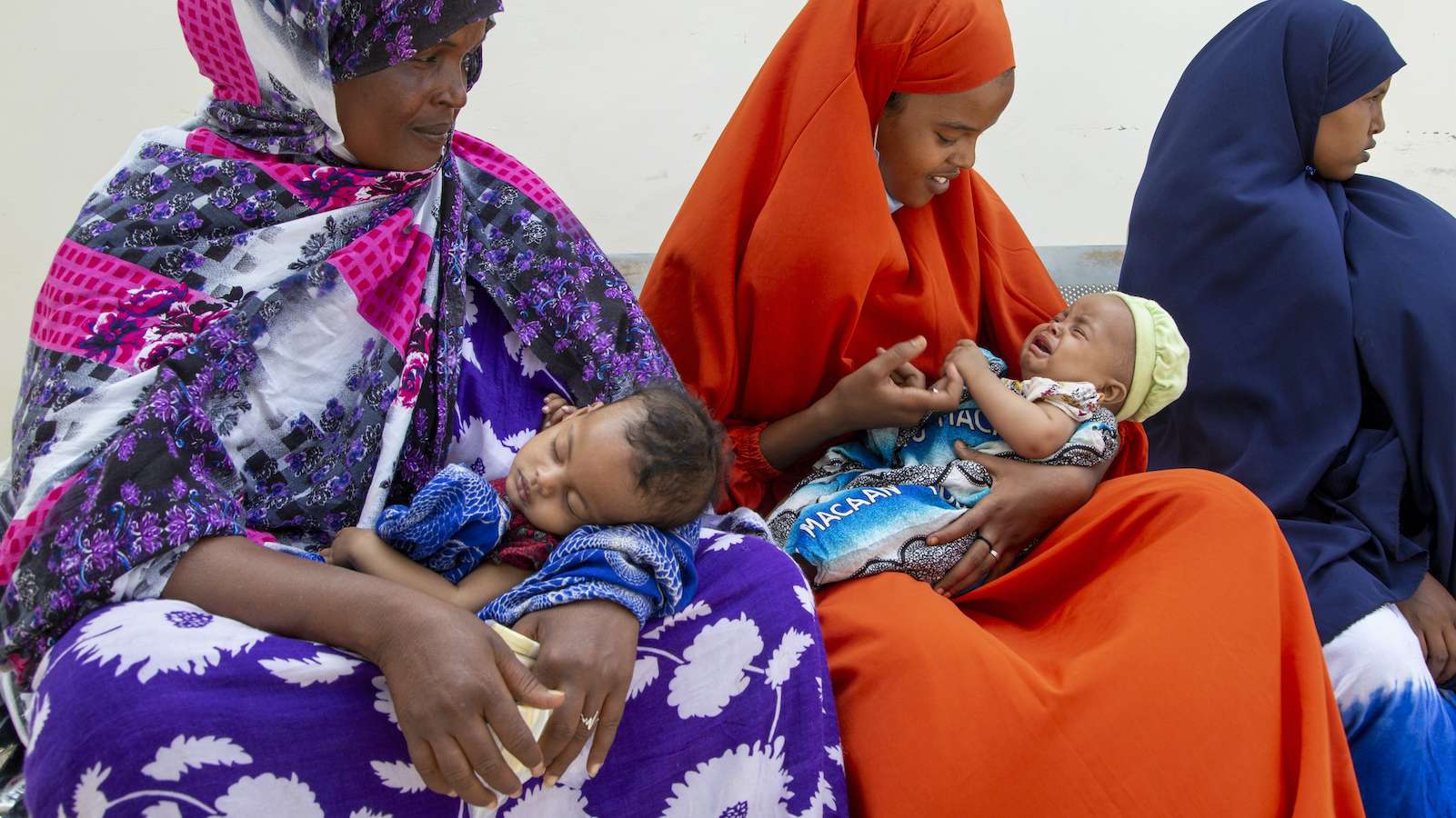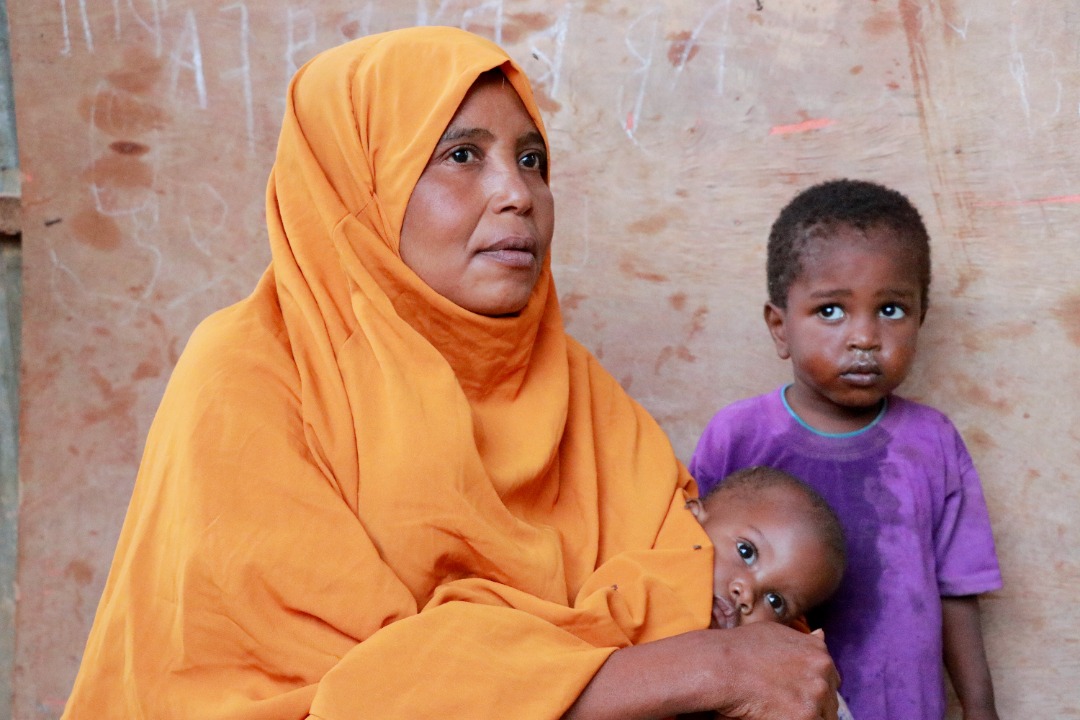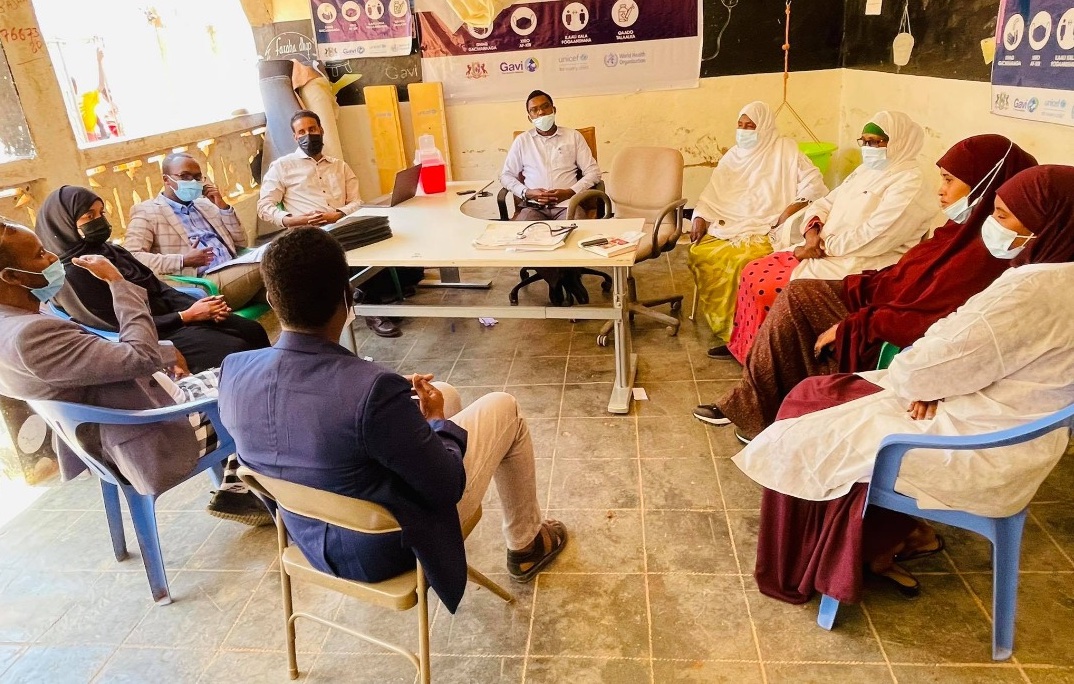
Improving Health Outcomes in Somalia with a Community-Centred Approach
OGOW Health
Zahra*, a busy mother living in Puntland, Somalia, was struggling to find the time to book and attend healthcare appointments for her 12 children. Though their health and well-being was a top priority, the overwhelming responsibility of managing her household left her precious little time to learn about her children’s healthcare needs and manage their immunization schedules.
Zahra’s situation is common in Somalia, where women and caregivers face major barriers to accessing healthcare for themselves and their children. Somalia's maternal mortality rate is among the highest in the world, at 1,400 per 100,000 live births. Access to maternal health services is low with 44% and 38% of births in Somaliland and Puntland attended by skilled birth attendants (UNFPA, 2016). According to UNICEF, one out of every eight children in the region will die before they turn five. Currently in Somalia, Penta 3 immunization coverage remains as low as 43% (which is among the lowest globally) followed closely by measles coverage at 49%.

Supported by FIT, OGOW Health tested an innovative solution aimed at improving health outcomes for Somali children through the use of an electronic medical record and information management system. The system was designed to improve medical record keeping, connect Somali caregivers with healthcare services with tools like SMS appointment reminders, deliver health education and introduce a dashboard for tracking patient information and statistics. In partnership with World Vision Somalia, the innovation was tested at two health facilities in the country.
As part of the innovation, 1,825 mothers/caregivers and 2,059 children under one year of age were on-boarded to an SMS reminder program. For each child, an individual immunization calendar was created based on the child’s date of birth. A total of 2230 SMS nudges were sent out between August 2021 and April 2022. OGOW also delivered two informational/confidence building workshops for 40 mothers/caregivers, two informational/gender sensitizing workshops for 10 healthcare workers, two dashboard trainings for 10 healthcare workers and three administrators, and held multiple high-level meetings with key stakeholders, including the Ministry of Health, to improve the program and system interoperability.

The results of the innovation were impressive. At endline, patients demonstrated a 99.1% adherence rate to SMS appointment reminders and were on track with their child’s immunizations. Of the 40 caregivers/mothers who attended the workshop, 78% were able to pass a test at endline showing they have the information needed to make an informed decision about their child’s immunization (a major improvement from the 28% pass rate at midline).
Of the 10 healthcare workers (1 man; 9 women) and three administrators trained to use the system, all provided positive feedback on the application’s efficacy and ease of use. They reported major time savings (freeing up time to provide other services for patients), as well as a reduction in error and improved data accuracy.
“When we do our reporting, we can easily spot if there are any patients we have missed or children that need to be vaccinated and then we can easily follow-up,” said Mahad Ashkir, a nurse working at the Kalkaal Health Clinic. “Having more mothers come to the clinic to vaccinate their children has also opened the opportunity for me to raise their awareness and knowledge of vaccinations, such as possible side effects, and nutrition.”
The innovation made an impact on Zahra’s ability to care for the needs of her children, in particular her youngest daughter, who was born one month before Zahra attended OGOW’s workshop and was on-boarded to receive SMS reminders. By the time her daughter was eight months old, she had attended all nine healthcare appointments on time and had scheduled two additional appointments to complete her daughter’s vaccination schedule.
“Before the OGOW application, I did not know my children’s vaccination schedules and why they needed to get vaccinated,” said Zahra. “Now, I receive SMS reminders regarding my children’s vaccination appointments, which is helpful because now I know why they need the vaccinations, and I can plan ahead and make sure we get to the clinic as needed.”
During the test, Zahra reported to OGOW that her children were reading her SMS reminders for her, since she was not able to read. As a result, OGOW pivoted the innovation to include SMS voice message reminders to improve access to illiterate caregivers.
“OGOW Health team shared that they are planning to send audio reminders to my family, and this would help me tremendously because I can then listen to the reminders myself.”
Based on the success of the innovation, OGOW is planning to scale-up to various health districts in Somalia. As of April 2022, eight new facilities have been identified for participation.
*Names have been changed to protect identities.

